
Kate is a journalist, digital content editor, and SEO specialist, with 20+ years of experience in print and digital communications. In leading the online publishing and marketing efforts of Science Connected, Kate is spreading science literacy, social good, and environmental sustainability while debunking pseudoscience through science journalism.
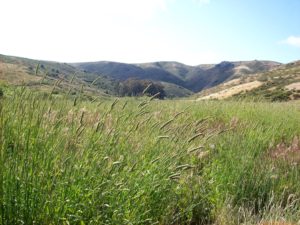
An Evolutionary Approach to Conserving Plant Habitats
By Mackenzie Myers (@thetiniestnail) To conserve plant habitats, a traditional approach to biodiversity—species richness, or saving as many species as possible—might not be the most effective route. Instead, vulnerable landscapes might be better served by a quality-over-quantity mindset, a recent paper from a team of UC Berkeley scientists suggests. Think of going into a grocery ...
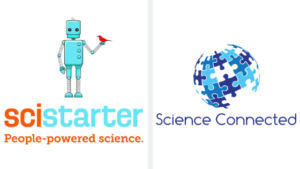
Citizen Science Connected, a New Blog Platform
SciStarter and Science Connected are partnering to produce a new blog platform: Citizen Science Connected. Citizen science is a way for regular people to do real research, and the Citizen Science Connected platform is a place to tell those stories. The fields that citizen science advances are diverse: ecology, astronomy, medicine, psychology, linguistics, genetics, engineering, ...
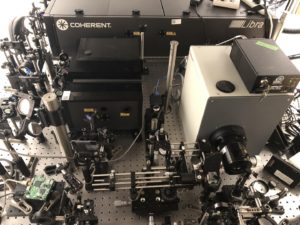
Ultrafast Camera Freezes Time
A new ultrafast camera technology called T-CUP is making it possible to see extremely fast phenomena, even light, in slow motion. By Kate Stone A new camera technology is making it possible to see extremely fast phenomena, even light, in slow motion. Called T-CUP, the world's fastest camera can capture ten trillion (10 exp 13) ...

Facial Recognition: How Many Faces Do You Know?
By Kate Stone (@GotScienceOrg) It turns out that many of us are better at facial recognition than we realize. For the first time, science has put a number on how many faces people remember and recognize—a staggering 5,000 on average. Researchers from the University of York tested how many individual faces people could recall from ...
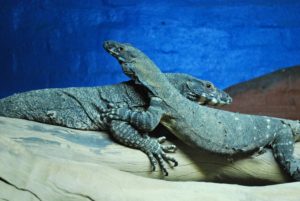
Fortune Favors Bold Lizards
It has been said that the brave don’t live as long, but the timid don’t live at all, so this one is for the brave. Bold lizards, regardless of size or sex, have the most success finding mates. By Kate Stone Ecologists have found a valuable life lesson to be learned from lizards: a bold ...

Depression May Speed up Brain Ageing
By Kate Stone Psychologists at the University of Sussex have found a strong correlation between depression and the speed at which the brain ages. Although scientists have previously found that people with depression or anxiety have an increased risk of dementia later in life, this is the first study that provides comprehensive evidence for the ...
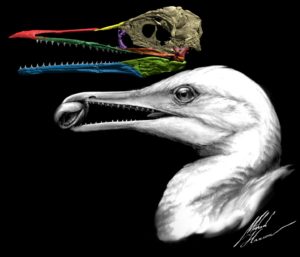
Another Early Toothed Bird Raises Its Head
A team of paleontologists reveals new details about one of the most striking transformations in evolutionary history: a toothed bird. By Kate Stone Sometimes what you seek is right under your nose. Using fossils found in the 1870s, paleontologists have pieced together the skull of a toothed bird that represents a pivotal moment in the ...
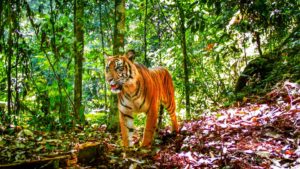
Sumatran Tigers Clinging to Survival
By Kate Stone @GotScienceOrg For the past year, a research expedition has tracked endangered tigers through the Sumatran jungles and found the animals barely clinging to survival in low-density populations. The expedition findings have reawakened fears about the possible extinction of these elusive apex predators. What is the key to saving the Sumatran tigers? Protecting ...
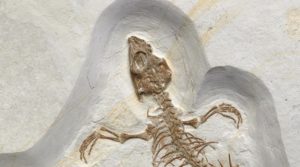
Vadasaurus Fossil Shows a Reptile in Transition
A small Vadasaurus fossil reveals how some land-dwelling reptiles moved back into the water. Find out more and meet its modern relatives. By Kate Stone A small fossil—just a foot long—is revealing secrets of how some land-dwelling reptiles moved back into the water. After studying the 155-million-year-old reptile fossil, scientists at Johns Hopkins University and ...
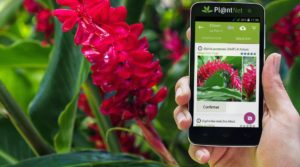
Citizen Scientists Invited to Identify Plants
By Kate Stone @GotScienceOrg Pl@ntNet is a citizen science project and an app that helps you identify plants, thanks to the camera of your smartphone. The app recognizes more than 13,000 species around the world. We recently spoke with Rémi Knaff, community manager for the project, about plant identification and citizen science. GotScience: Who can ...
